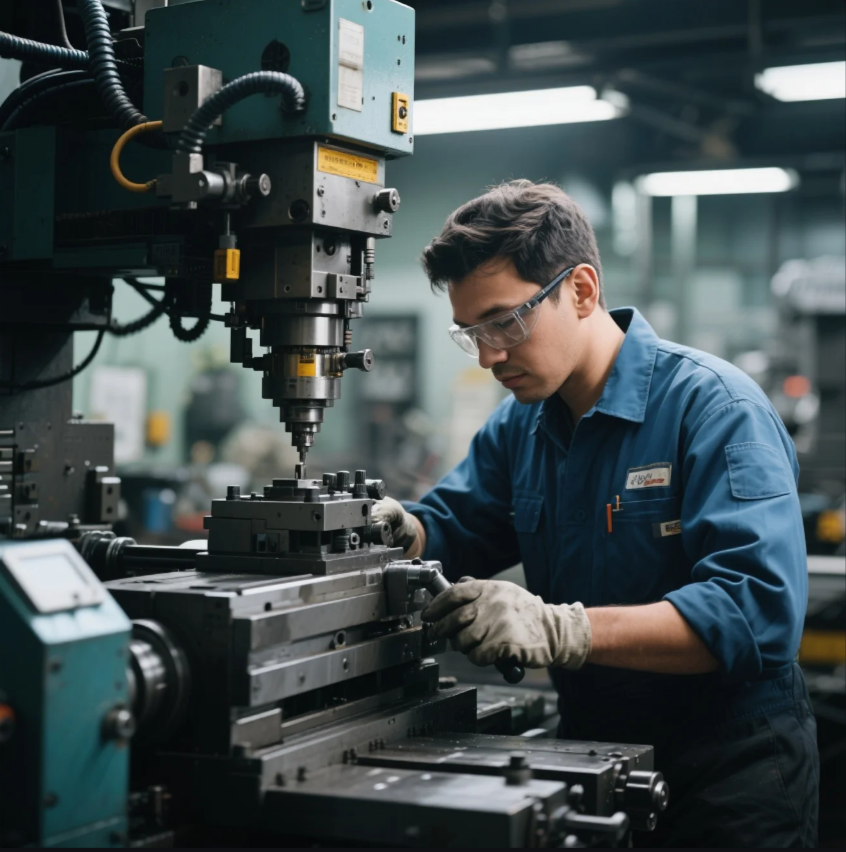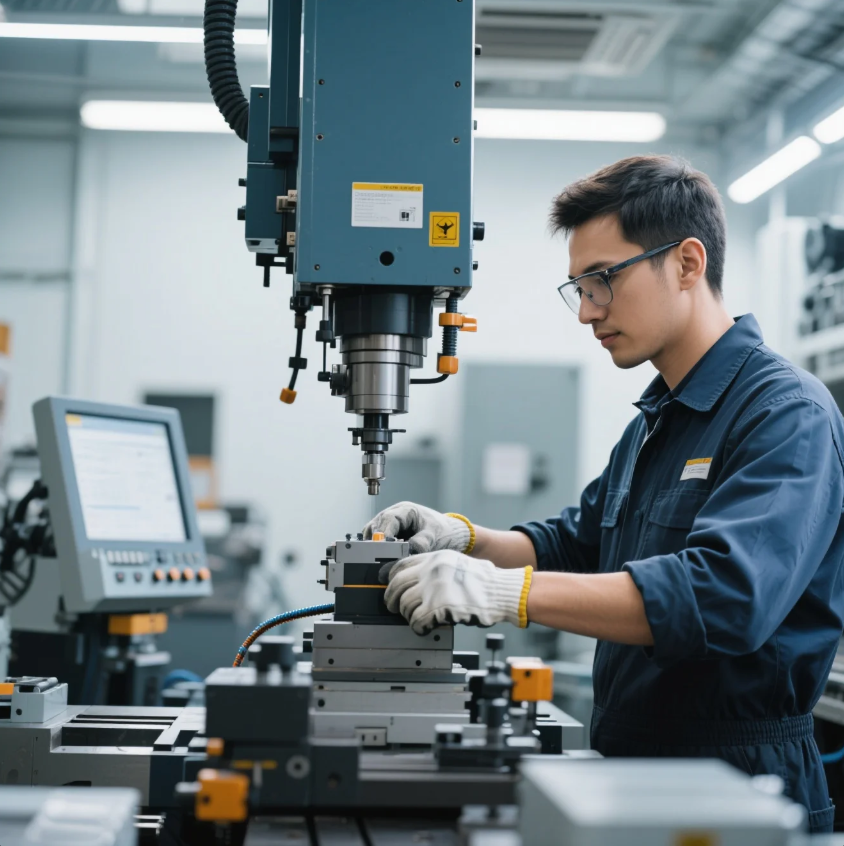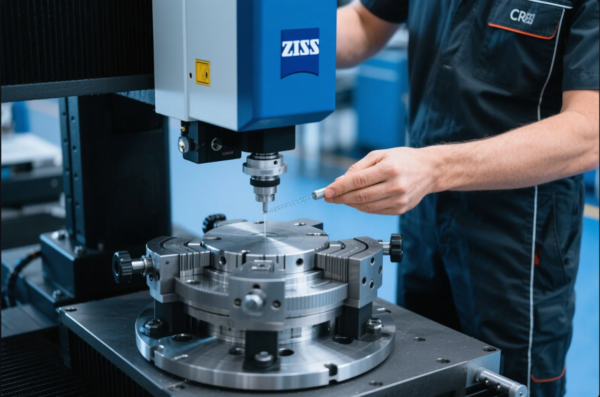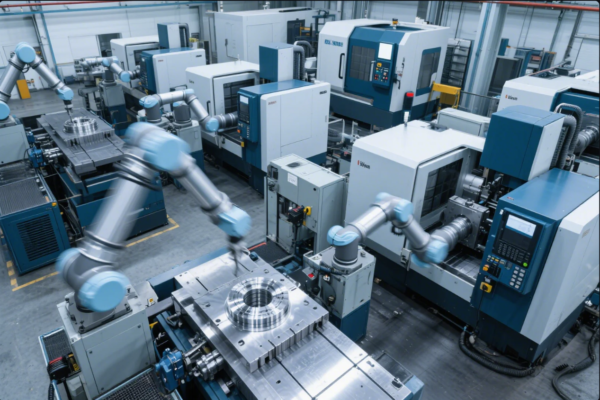Do CNC Machinists Need Degrees?

CNC (Computer Numerical Control) machinists play a crucial role in manufacturing, creating high-precision parts used in a wide range of industries. But do CNC machinists need formal degrees to succeed in this field? In this article, we’ll explore the qualifications and education required to become a CNC machinist, the earning potential, and whether a degree is necessary for career advancement.
Snippet paragraph: CNC machinists don’t necessarily need a formal degree, but specific skills, certifications, and experience are key to success. Read on to learn more about what qualifications are needed in this field.
Transition paragraph: Interested in becoming a CNC machinist? Here’s what you need to know about the qualifications and training you might need to get started in this rewarding career.
What Qualifications Do I Need to Be a CNC Machinist?

To become a CNC machinist, you don’t always need a formal degree, but certain qualifications and skills are essential for success. The most important factor is a combination of practical experience, technical knowledge, and certifications.
Essential Qualifications
- High School Diploma or GED: Most employers require a high school diploma or GED as the minimum education level. This ensures you have basic skills in mathematics, reading, and problem-solving.
- Technical Training or Apprenticeship: Many CNC machinists gain hands-on experience through technical programs, vocational schools, or apprenticeships. These programs teach you the skills necessary to operate CNC machines, read blueprints, and understand programming.
- Certifications: While not always required, certifications can help you stand out in the job market. Organizations like the National Institute for Metalworking Skills (NIMS) offer certifications that validate your skills in CNC machining and programming.
Other Key Skills
- Attention to detail: CNC machinists must be able to follow precise instructions and ensure that parts are made to the exact specifications.
- Problem-solving: Sometimes, machines need adjustments or troubleshooting, and machinists must be able to identify and resolve issues quickly.
- Mathematical skills: CNC machinists often need to work with measurements, angles, and tolerances, which requires solid math skills.
What Schooling Do You Need for CNC?

While a college degree is not typically required to become a CNC machinist, formal schooling in the form of technical education or vocational training is highly recommended. This type of schooling prepares you for the hands-on aspects of the job and helps build a strong foundation in CNC machining.
CNC Machinist Schooling Options
- Vocational Schools and Community Colleges: These institutions offer specialized CNC machining programs that typically last 1 to 2 years. These programs cover machine operation, blueprint reading, CNC programming, and more.
- Apprenticeships: Many machinists learn through apprenticeships, which combine on-the-job training with classroom education. Apprenticeships generally last 3 to 4 years and allow you to earn while you learn.
- Online and Continuing Education: For those already working in the industry, online courses or continuing education programs can provide additional training in CNC programming, 3D modeling, or advanced machine operation.
What You’ll Learn in School
- Machine setup and operation
- CNC programming (including G-code)
- Blueprint reading and technical drawing interpretation
- Tool selection and material handling
- Safety procedures and machine maintenance
Can You Make 100k as a CNC Machinist?

Yes, it’s possible to make $100,000 or more as a CNC machinist, but it depends on several factors such as experience, location, and specialization. While the average CNC machinist salary is typically between $40,000 and $60,000 per year, highly experienced machinists or those working in specialized industries can earn significantly more.
How to Reach the $100k Mark
- Experience: As with most trades, the more experience you have, the higher your earning potential. CNC machinists with 10 or more years of experience, especially in specialized areas like aerospace or automotive manufacturing, can command higher salaries.
- Specialization: CNC machinists who specialize in complex machining tasks, such as multi-axis milling or working with high-end materials (like titanium or Inconel), are often paid more.
- Location: Salaries can vary depending on the geographic location and demand for CNC machinists in the area. Some regions, particularly those with high manufacturing activity, offer higher pay to attract skilled machinists.
- Overtime and Bonuses: In certain industries, CNC machinists may earn additional income through overtime hours or performance-based bonuses.
Example of High Earning Potential
Experienced CNC programmers, particularly those who take on management roles or work in high-demand industries like aerospace, can earn upwards of $100,000 annually. Supervisors or CNC technicians overseeing multiple machines may also reach similar salary levels.
Do CNC Programmers Need a Degree?

CNC programming, like machining, does not require a formal degree. However, programming CNC machines does require specific technical knowledge, and having formal training can be very beneficial.
Training for CNC Programmers
- Certifications: Similar to machinists, CNC programmers can gain certifications in CNC programming or machine tool operation, which can help advance their careers. NIMS certification is one popular option.
- Training Programs: Many community colleges, technical schools, and online platforms offer specialized training in CNC programming, including learning languages like G-code and CAM (Computer-Aided Manufacturing) software.
- Experience: Much of a CNC programmer’s expertise comes from hands-on experience. Programmers often start as operators before transitioning into programming roles, which allows them to gain valuable knowledge about the machines they’ll be programming.
Education vs. Experience
While a degree is not necessary, a combination of formal training and practical experience is key to becoming an effective CNC programmer. Over time, experienced CNC programmers may earn higher salaries, particularly if they work in specialized or high-demand industries.
Conclusion
Becoming a CNC machinist does not require a traditional degree, but it does require a combination of technical training, hands-on experience, and possibly certifications. With the right education and skills, CNC machinists can earn a competitive salary, with the potential to make $100,000 or more in specialized roles. While formal schooling isn’t required, investing in CNC training programs or apprenticeships can greatly improve your chances of success in the field.
If you’re considering a career in CNC machining or looking to expand your skills, Prime offers a wide range of CNC solutions and training resources to help you get started. Contact us today to learn more about our products and services.
TEMPLATE_END







